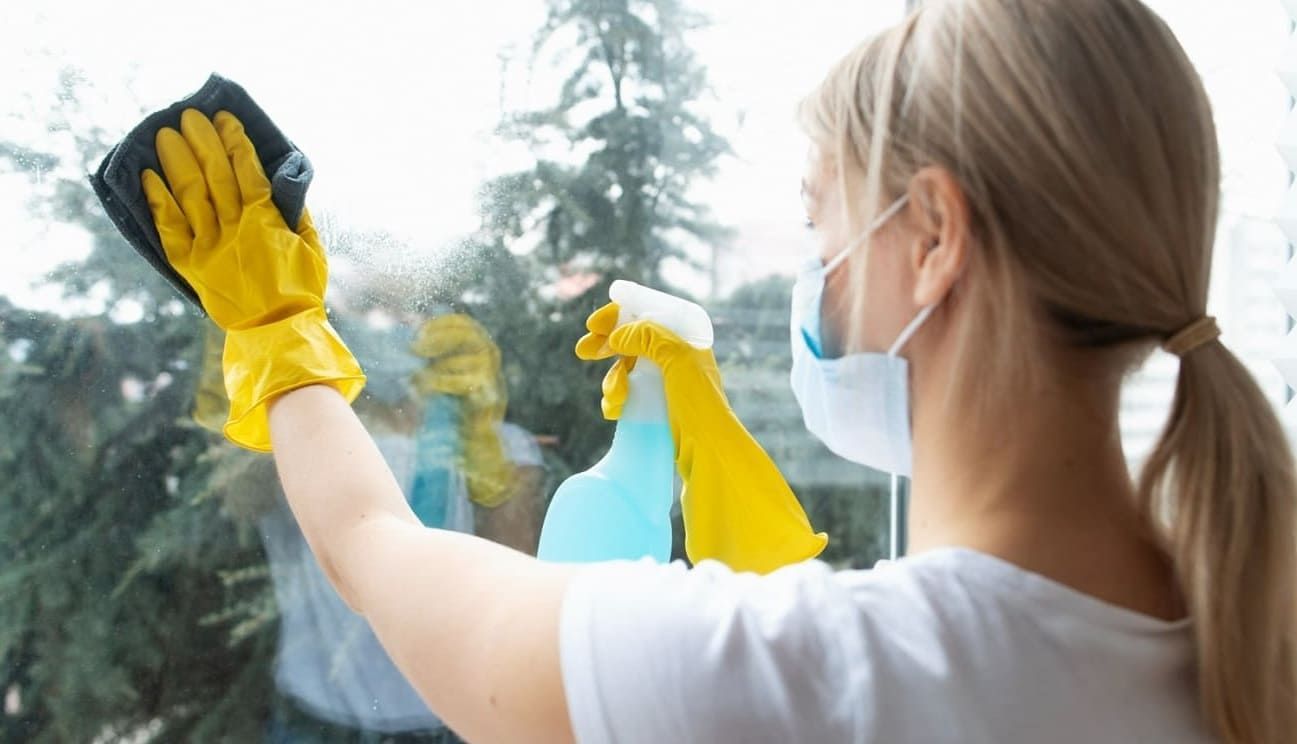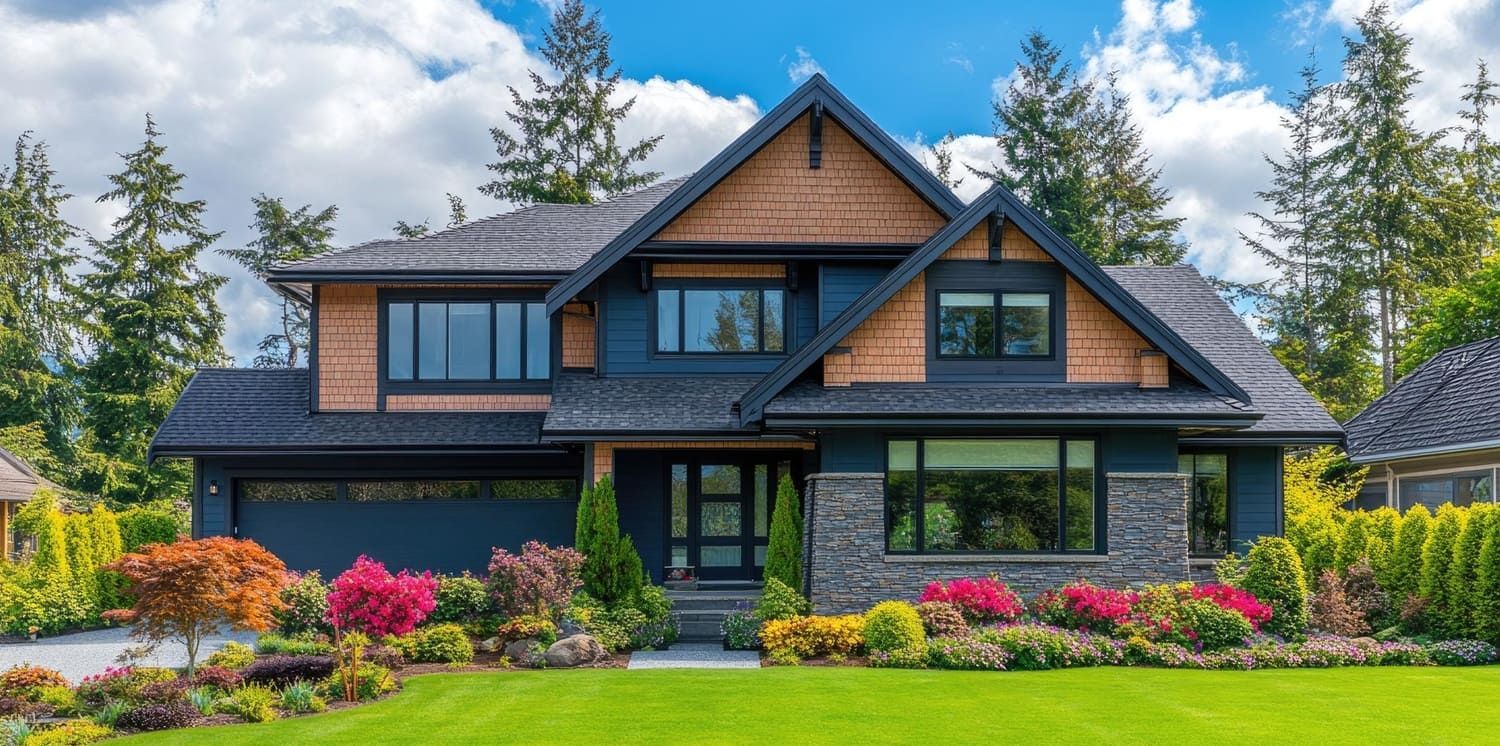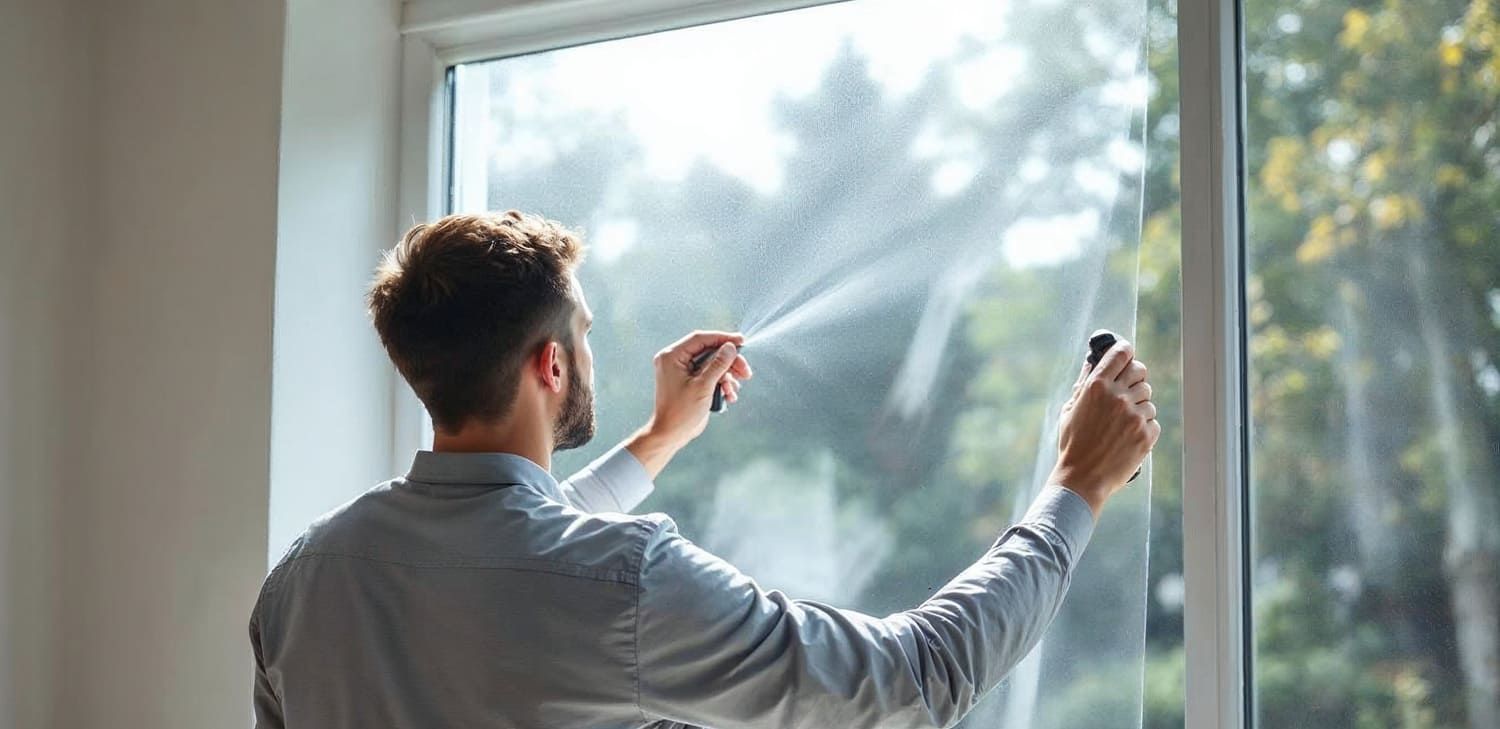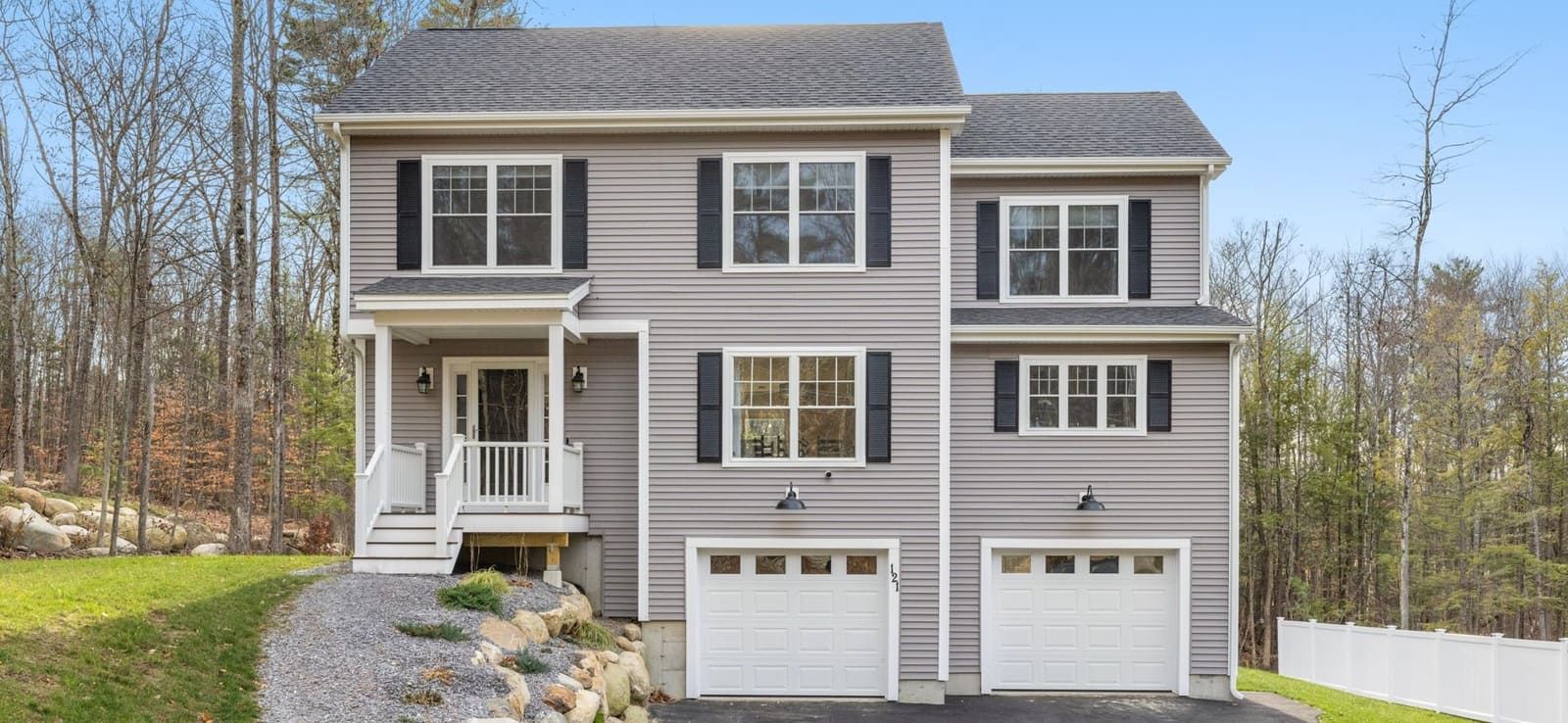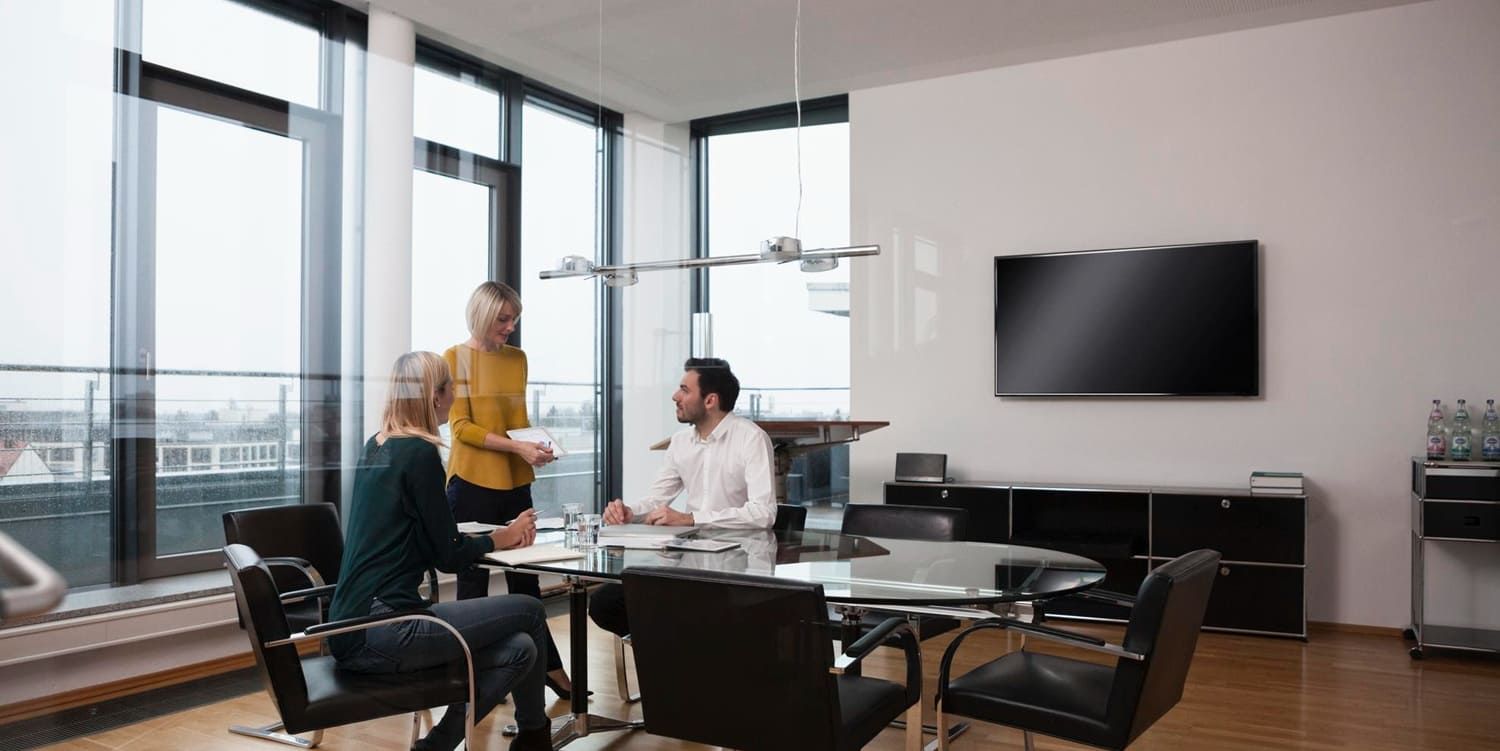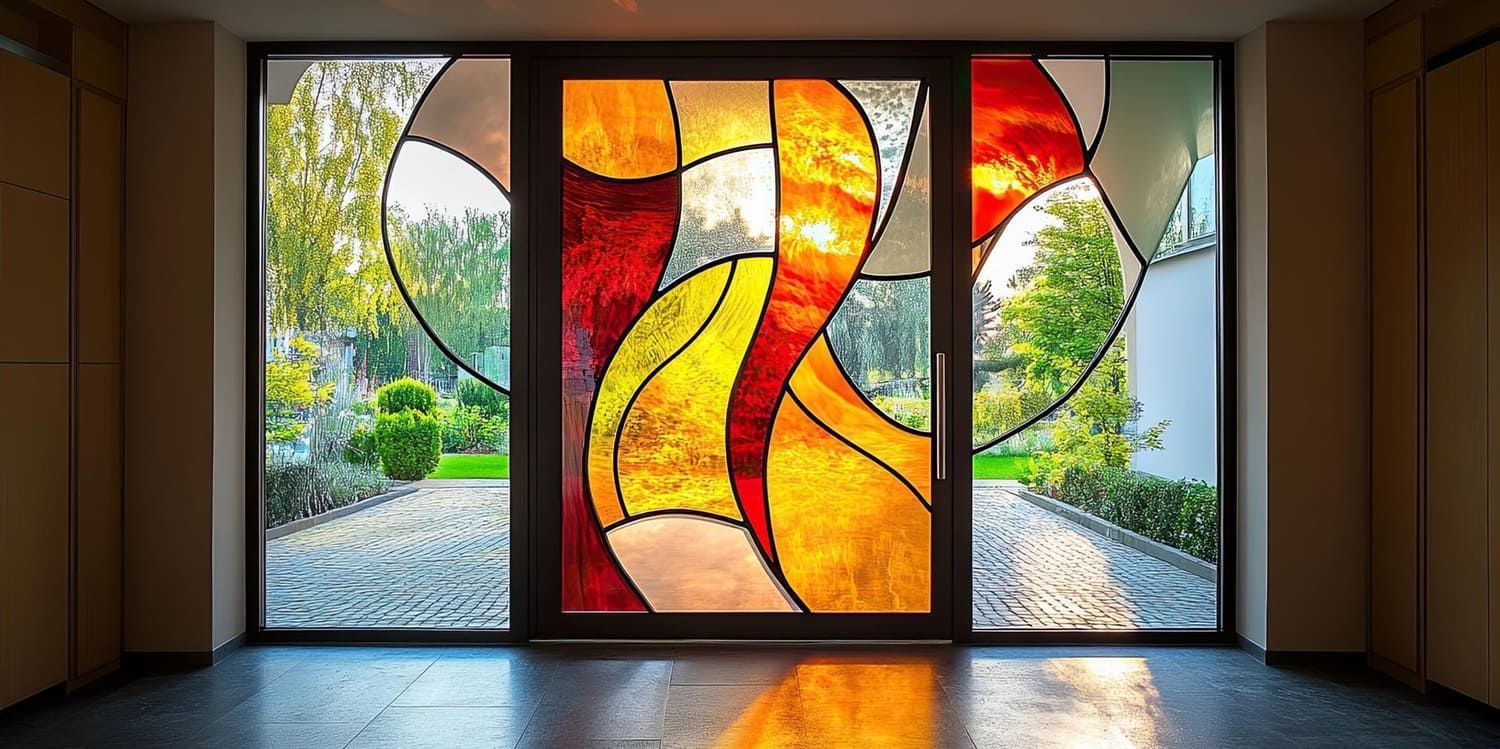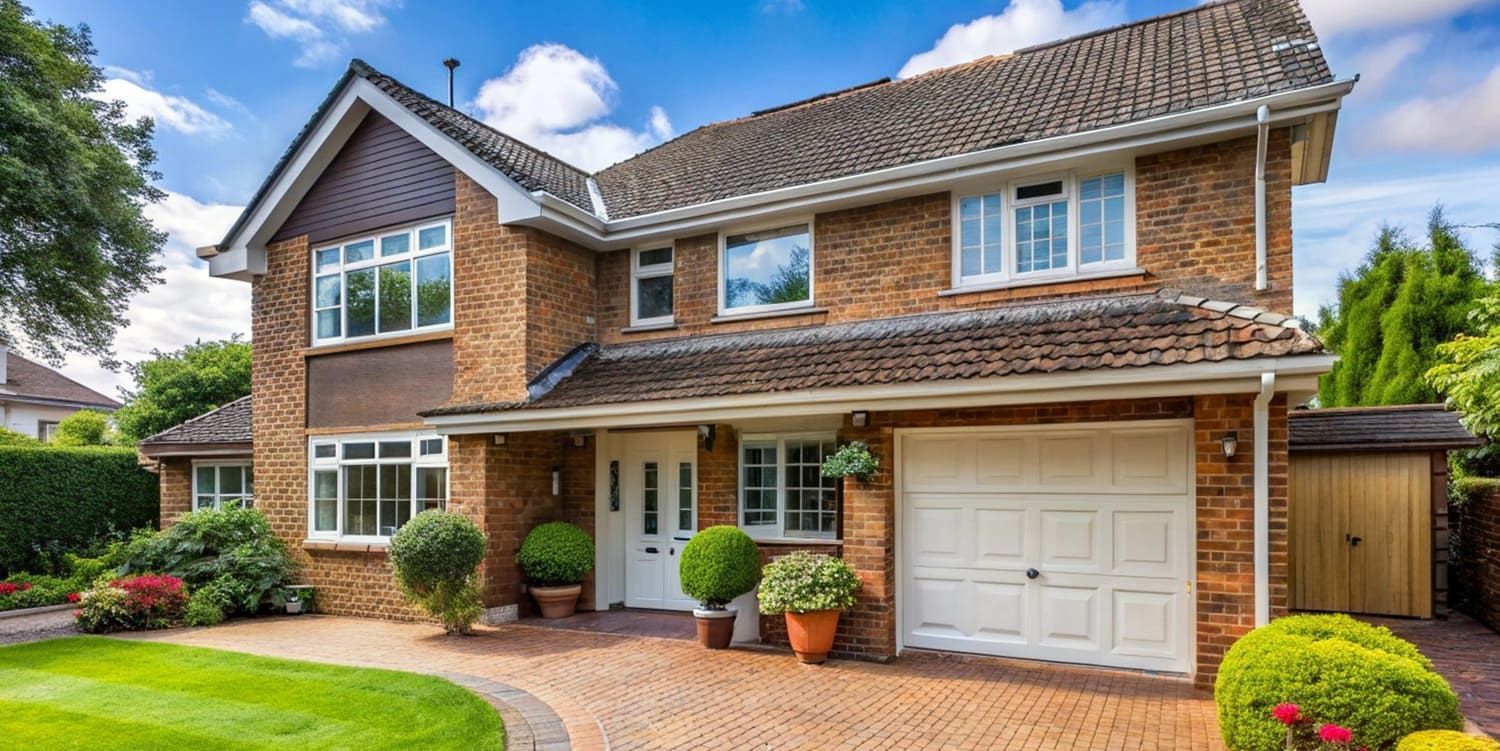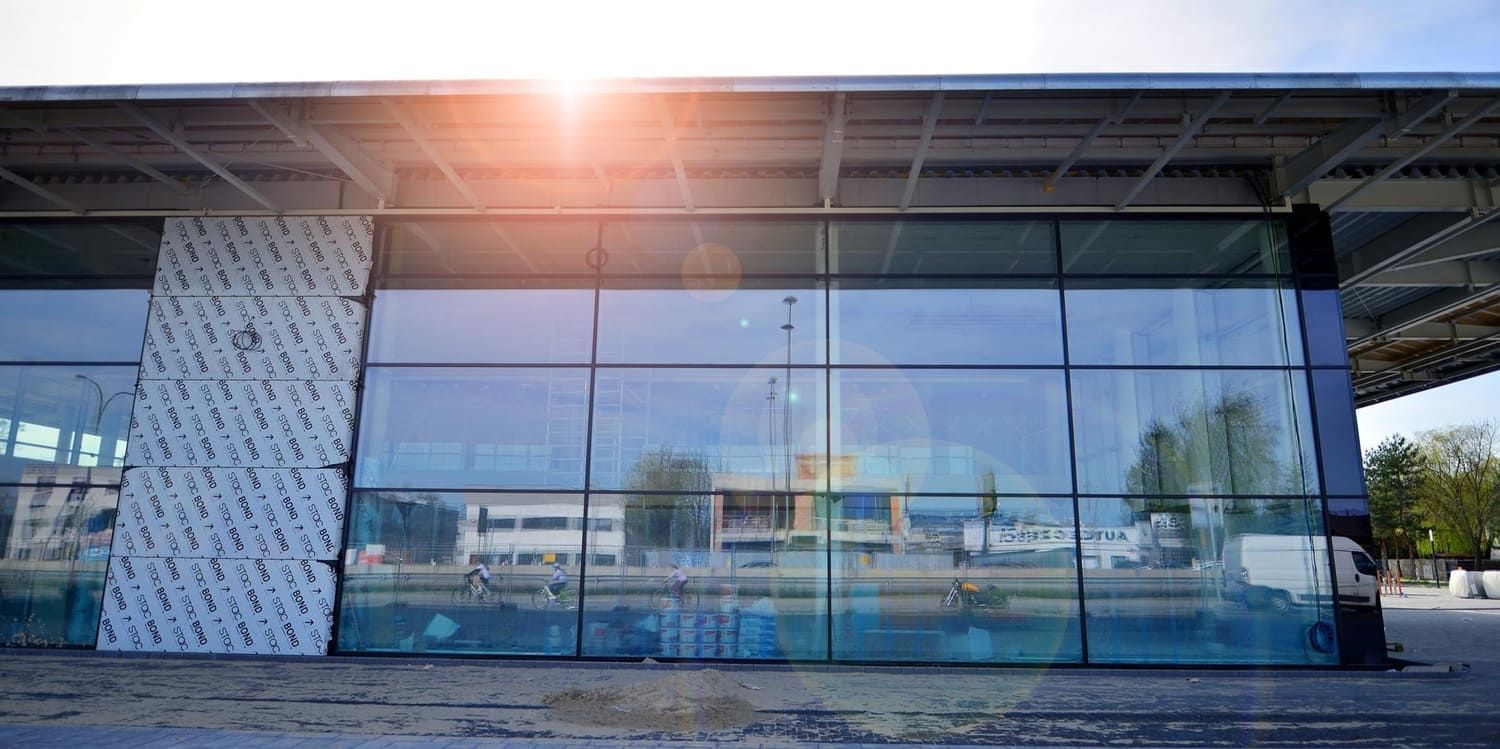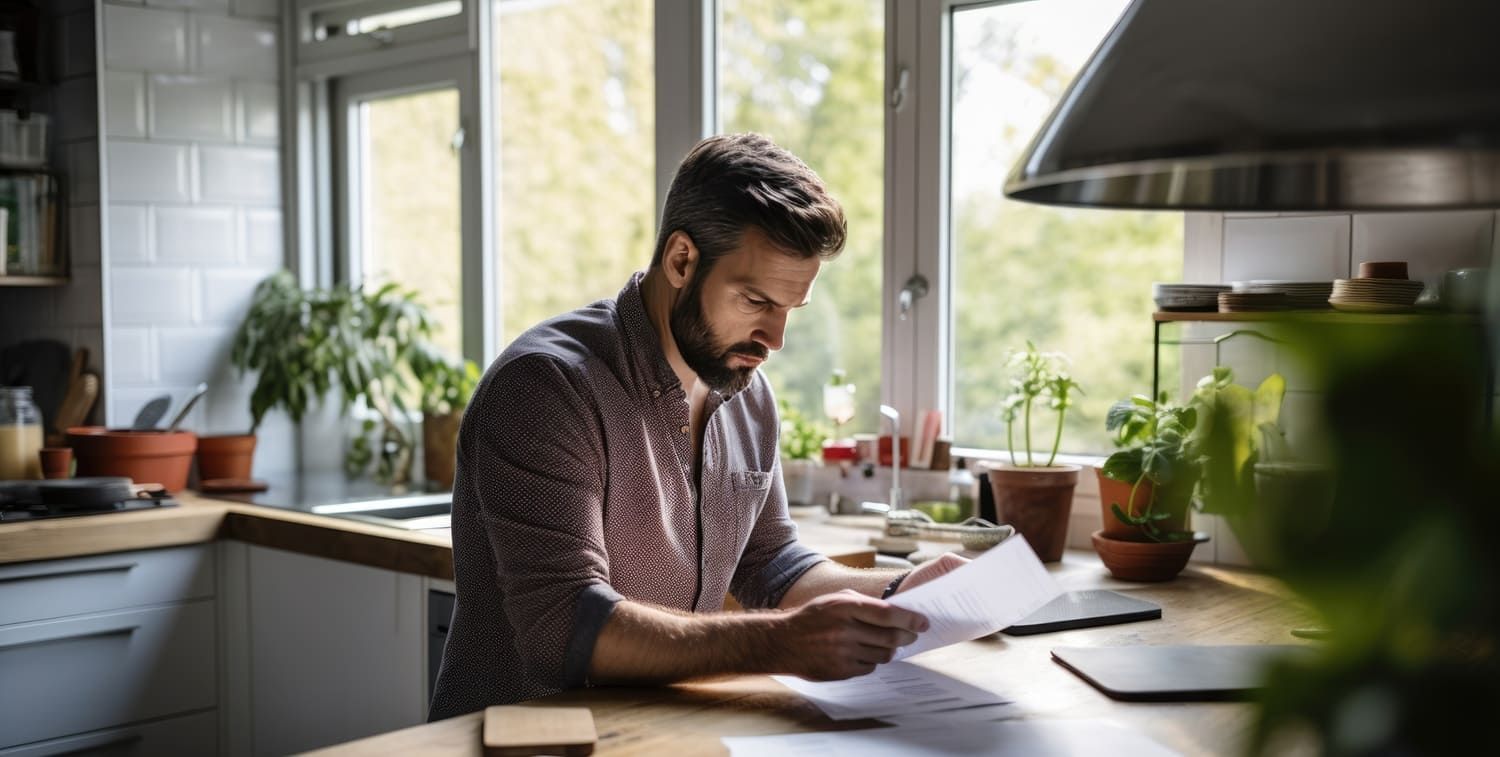THE BEST IN RESIDENTIAL AND COMMERCIAL WINDOW TINTING
Does Home Window Tinting Really Block UV Rays?
Home window tinting is more than just a stylish upgrade. It offers significant protection against harmful UV rays. Many homeowners are unaware of the full benefits.
UV rays can cause damage to your home's interior. They fade furniture, flooring, and artwork over time. But can window tinting really block these rays?
This article explores the effectiveness of home window tinting for UV protection. We'll discuss how it works and its additional benefits.
Whether you're considering residential window tint or searching for "home window tinting near me," this guide is for you. Discover how window tinting can enhance your home's comfort and efficiency.
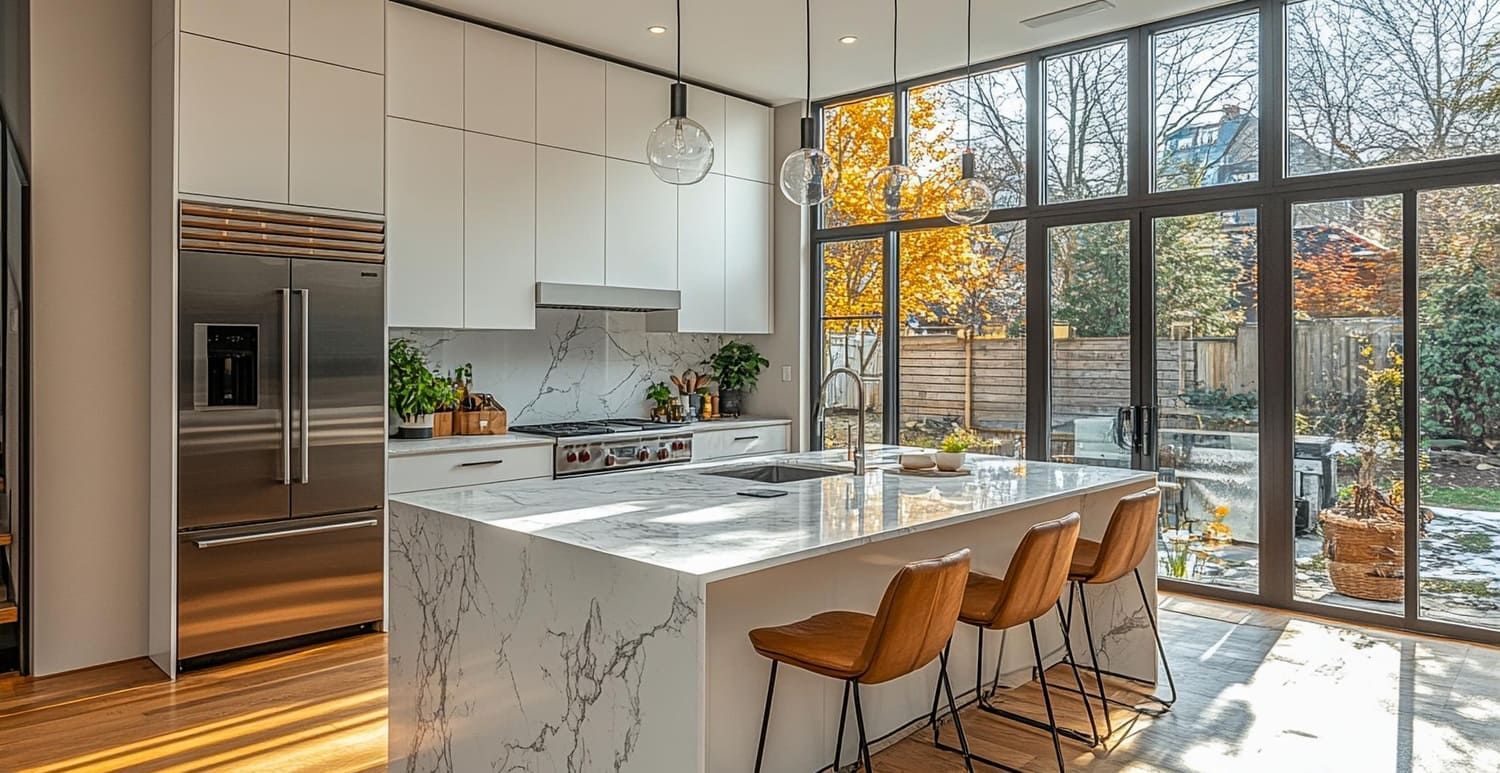
Understanding UV Rays and Their Impact on Your Home
UV rays are invisible but powerful. They are part of the sunlight that reaches the Earth, and they can enter through windows. When it comes to your home, these rays pose several risks.
The sun's UV radiation can cause fading in your home's decor. This includes your furniture, carpets, and even artwork. Over time, these items lose their color and appeal.
UV rays are also harmful to your family's health. Prolonged exposure can lead to skin problems, even indoors. Most people don't realize that window glass doesn't stop all UV radiation.
To fully grasp the effects of UV rays, consider these common impacts on your home:
- Discoloration of fabrics and upholstery
- Degradation of flooring materials
- Potential skin health issues
Understanding these effects highlights the importance of taking protective measures. Home window tinting offers a reliable solution. It can block up to 99% of these damaging rays, safeguarding both your home and health.
How Home Window Tinting Works for UV Protection
Home window tinting uses a special film that adheres to the glass surface. This film is crafted to filter sunlight, selectively blocking certain rays. It is designed to reject UV radiation, acting as a barrier.
The construction of the tint film involves multiple layers. Each layer contributes to reducing UV penetration. The outer layer reflects sunlight, while inner layers absorb and disperse UV rays.
Professional-grade window tints offer superior UV blocking abilities. They are engineered to obstruct up to 99% of harmful UV radiation. This high level of protection is crucial for homes in sunny areas.
Choosing the right window tint film ensures you achieve optimal results. High-quality films come with advanced technologies that enhance their performance. Here are some features of effective UV-blocking tint:
- Multi-layer composition
- Reflective and absorptive properties
- High UV rejection percentage
By integrating these advanced features, window tint not only protects your home but also ensures comfort. The reduction in UV exposure helps maintain the longevity of your home furnishings and enhances your indoor environment.
Types of Residential Window Tint and Their UV Blocking Capabilities
Different types of residential window tint offer varying levels of UV protection. The choice of tint affects how much UV radiation is blocked. Each tint type comes with unique advantages.
Dyed window tints are cost-effective and improve privacy. However, they offer moderate UV protection compared to other options. They are often preferred for aesthetic purposes.
Metalized window tints provide superior UV blocking. They incorporate metal particles that reflect and absorb UV rays. This type of tint offers additional benefits like increased strength.
Ceramic window tints are among the best for UV protection. They do not contain metals or dyes, ensuring clear visibility. They effectively block up to 99% of UV rays without interfering with electronics.
Here are some common types of residential window tint:
- Dyed Tint: Basic UV protection, lower cost.
- Metalized Tint: High UV blockage, reflective surface.
- Ceramic Tint: Excellent UV protection, clear view.
Selecting the right tint depends on your specific needs and preferences. Whether you prioritize budget or maximum UV protection, there's a suitable option available.
Additional Benefits of Home Window Tinting
Home window tinting offers more than just UV protection. It enhances indoor comfort by reducing glare and maintaining a steady temperature. Tinted windows ensure a pleasant environment throughout the day.
Moreover, window tinting can significantly lower energy bills. By minimizing heat entry, it reduces the need for air conditioning. As a result, energy consumption decreases, translating to savings.
Privacy is another key advantage of residential window tint. It prevents outsiders from looking in, without blocking natural light. This helps maintain an open yet private living space.
Window tints can also improve home security. Some films are designed to strengthen glass, making windows more resilient. In the event of an accident or break-in attempt, the glass is less likely to shatter.
Consider these additional benefits:
- Reduced Glare: Better visibility and comfort indoors.
- Lower Energy Costs: Less reliance on air conditioning.
- Enhanced Privacy: More seclusion without darkness.
- Improved Security: Increased window strength.
Each benefit contributes to a more efficient and comfortable home. Home window tinting proves to be a wise investment for many homeowners.
Comparing Professional vs. DIY Home Window Tinting
Deciding between professional and DIY window tinting can be tough. Professional installation offers expertise and efficiency. Pros have the tools and know-how to ensure a flawless finish.
DIY window tinting, on the other hand, can save upfront costs. However, it requires patience and skill to avoid bubbles and creases. The quality might not match that of a pro job.
Consider these points when choosing:
- Professional Expertise: Guarantees quality and longevity.
- Time Investment: DIY takes more personal time.
- Cost Considerations: DIY might be cheaper initially.
- Quality Assurance: Professionals often provide warranties.
Ultimately, the choice depends on budget and confidence in your DIY skills. Professional installation often delivers better results, reducing potential for errors. However, for those who enjoy hands-on projects, DIY can be a rewarding challenge.
Factors to Consider When Choosing Home Window Tinting
Selecting the right window tinting for your home involves several considerations. First, assess the level of UV protection you desire. Different films can block varying degrees of UV rays, impacting how well they protect your interior.
Next, think about the type of tint that suits your home. Options include reflective, ceramic, and dyed films. Each type has specific advantages, such as added privacy or reduced glare.
Here are some factors to weigh:
- UV Blocking Ability: Essential for protecting interiors.
- Aesthetic Appeal: Align with home decor.
- Energy Efficiency: Consider insulation enhancements.
- Privacy Needs: Some tints offer better privacy.
Consider durability and warranty options as well. A high-quality tint should last for years with minimal maintenance. Balance cost versus benefits to make the best choice. Your decision can improve home comfort and lead to long-term savings.
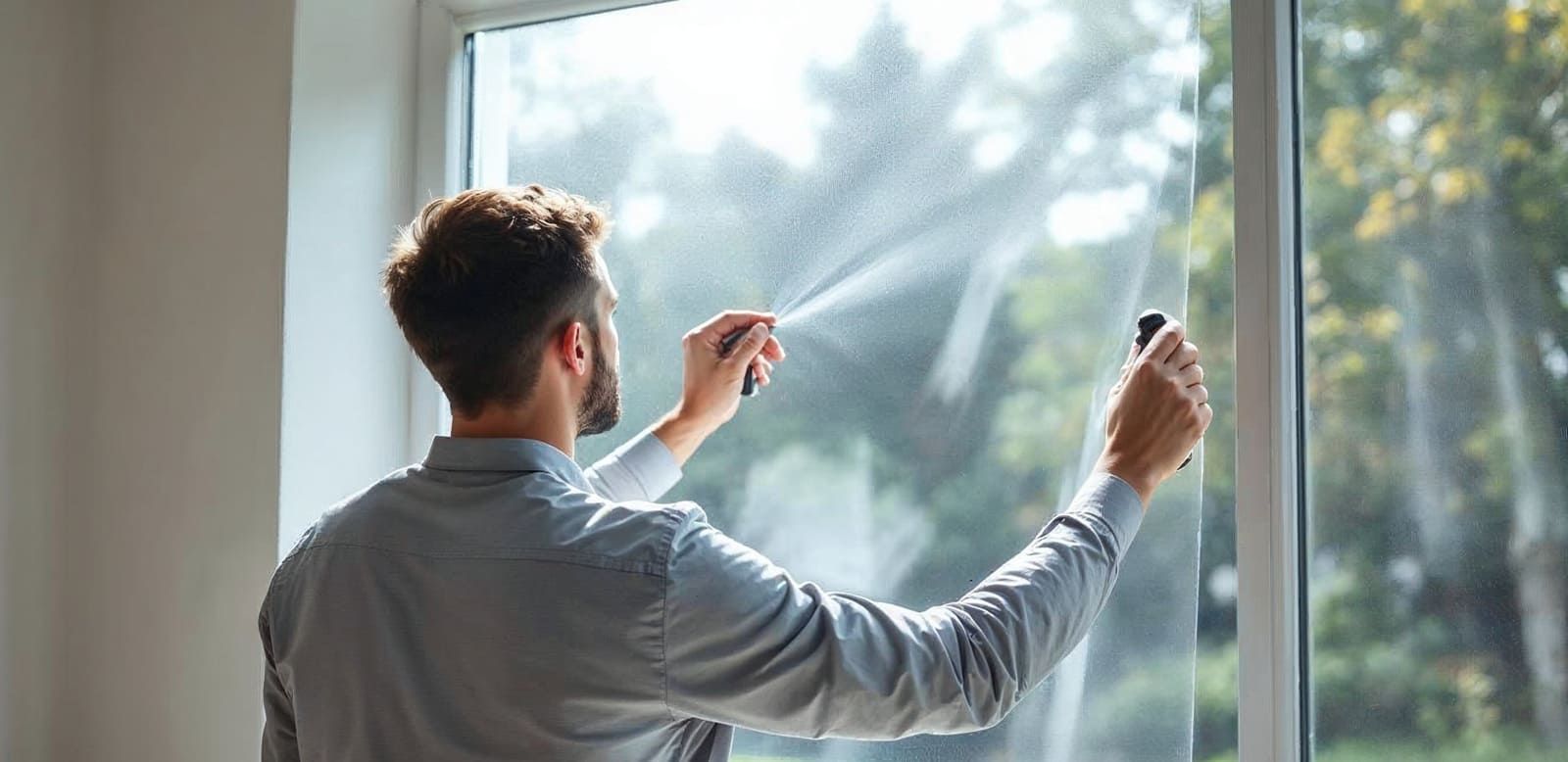
The Installation Process: What Homeowners Can Expect
The installation process for home window tinting is usually straightforward. It starts with cleaning the windows to ensure the film adheres properly. A professional installer will then measure and cut the tint film to fit each window precisely.
Next, the film is carefully applied to the glass. Installers use special tools to smooth out air bubbles and ensure a seamless fit. This step is crucial for the longevity and appearance of the tint.
Typically, the process is completed within a day. The timeline can vary depending on the number of windows and the size of your home. After installation, avoid cleaning the windows for a few days to let the film settle properly.
Cost, Value, and Long-Term Savings of Home Window Tinting
The cost of home window tinting varies based on several factors, including window size and tint type. Generally, prices range from a few dollars per square foot to higher for premium films. Professional installation might add to initial costs but ensures better longevity.
Despite the upfront expense, window tinting can offer significant long-term savings. Lower energy bills are one of the most notable benefits. Tinted windows reduce the need for air conditioning by maintaining a stable indoor temperature. This results in substantial energy cost reductions over time.
In addition to energy savings, window tinting can enhance property value. The added comfort, UV protection, and aesthetic appeal increase a home's marketability. Key financial benefits include:
- Energy efficiency leading to lower utility bills
- Extended lifespan of furnishings due to UV protection
- Potential increase in resale value of the home
Frequently Asked Questions About Home Window Tinting UV Protection
Do all window tints offer UV protection?
Not all tints have the same UV-blocking capability. It's crucial to choose films specifically designed for UV protection.
How effective is window tinting at blocking UV rays?
High-quality residential window tints can block up to 99% of harmful UV rays.
Will window tinting affect natural light in my home?
Most window tints reduce UV exposure without darkening interiors significantly, maintaining natural light levels.
Can window tinting help with skin protection?
Yes, by blocking UV rays, window tinting can reduce skin exposure to harmful radiation.
For more insights into the benefits and choices available, consider these frequently asked questions:
- What types of window tint provide UV protection?
- How to choose the right tint for your needs?
- Are there any maintenance requirements?
How to Find the Best "Home Window Tinting Near Me"
Searching for the right "home window tinting near me" can seem daunting. Start by checking online reviews and ratings of local providers.
Create a shortlist by considering their expertise and customer feedback. Contact a few businesses to discuss your needs and get quotes.
Consider the following tips:
- Look for experienced and certified professionals.
- Compare pricing and services offered.
- Ask for references or past client testimonials.
Finding the right professional can ensure high-quality results for your window tinting project.
Conclusion: Is Home Window Tinting Worth It for UV Protection?
Home window tinting offers substantial protection against harmful UV rays. It blocks up to 99% of these rays, safeguarding your home interiors and enhancing comfort.
Investing in residential window tint provides more than just UV protection. It also improves energy efficiency, reduces glare, and enhances privacy. Overall, home window tinting is a worthwhile investment for protecting your home and enjoying long-term savings. For expert results, trust Film Systems of Florida, your Trusted LLumar Vista Dealer and Premier window film specialists near you serving Englewood, Sarasota, North Port, Siesta Key, Venice, South Venice, North Sarasota, South Sarasota, Sarasota Springs, Punta Gorda, Port Charlotte, Charlotte Harbor, Charlotte Park, Manasota Key, Harbour Heights, Grove City, Fort Myers, Cape Coral, Lehigh Acres, Bradenton, Palmetto, and the surrounding Florida areas—contact us for a free estimate today.
FAQs About UV Protection From Home Window Tinting
Does home window tinting actually block UV rays?
Yes. Quality residential window films can block up to 99% of harmful UV rays, protecting your skin, furnishings, and flooring from sun damage.
Why is blocking UV rays important for my home?
UV rays can cause skin damage, fading of furniture, and deterioration of flooring over time. Tinting helps preserve your home’s interior and protect your family’s health.
Do all window tints block UV rays equally?
No. While most quality films offer strong UV protection, premium ceramic or spectrally selective films provide the highest performance.
Can clear window films still block UV rays?
Yes. Even clear or nearly transparent window films can block almost all UV radiation without changing the appearance of your windows.
Does UV protection mean better heat control too?
Not always. UV rays cause fading and skin damage, while infrared rays are responsible for most heat. Many high-quality tints block both UV and infrared for complete protection.
Can window tinting help prevent skin cancer?
Yes. By reducing exposure to UV rays indoors, window film lowers the risk of skin damage and skin cancer—especially in sunny climates.
Will standard glass block UV rays without tint?
Standard glass blocks some UVB rays but allows UVA rays—the ones that cause premature aging and deep skin damage—to pass through.
Does UV-blocking tint protect artwork and photos?
Yes. It significantly slows fading, helping preserve paintings, photographs, and decorative pieces in direct sunlight.
Will tinting stop my carpet and hardwood from fading?
Yes. UV-blocking window film helps retain the color and quality of carpets, rugs, and hardwood floors by limiting sun exposure.
Can window tinting help protect electronics?
Yes. UV and heat can damage electronics and displays over time, and tinting reduces both risks.
Does UV protection wear off over time?
No. Quality window films maintain their UV-blocking performance for 10–20 years when installed professionally.
Are there UV-blocking films for skylights?
Yes. Specially designed films can be applied to flat or domed skylights to reduce UV damage from overhead sunlight.
Is UV-blocking tint different from privacy film?
Yes. Privacy film focuses on limiting visibility, while UV-blocking film targets harmful sun rays—though some films offer both benefits.
Does tinting still allow natural light into the home?
Yes. Many UV-blocking films are designed to filter harmful rays while keeping rooms bright and airy.
Can I get UV protection without changing my window’s appearance?
Yes. Clear UV-protective films preserve your windows’ look while adding invisible sun protection.
Does window tinting help with glare reduction too?
Yes. Many UV-blocking films also reduce glare, making it more comfortable to watch TV or work on a computer.
Is professional installation necessary for UV-blocking tint?
Yes. Proper installation ensures maximum UV protection, longevity, and a bubble-free finish.
Can I combine UV protection with decorative or frosted film?
Yes. Many decorative films can be made with built-in UV-blocking technology.
Will UV-blocking tint affect my indoor plants?
Most plants thrive under UV-blocking film because it still allows photosynthetically active light through while reducing harmful rays.
does home window tinting really block UV rays?
Yes. Professionally installed window films provide near-total UV protection, keeping your home cooler, safer, and better preserved.

